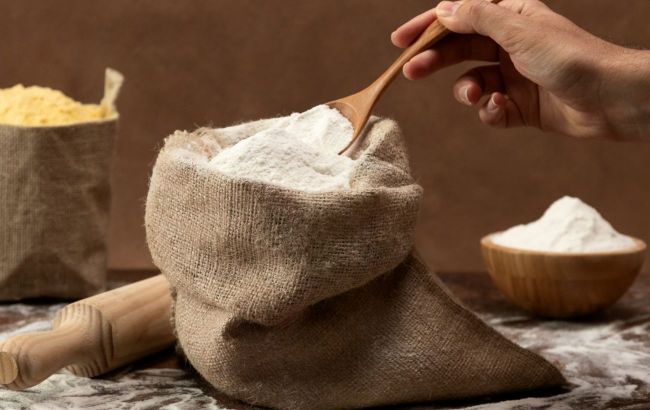4 types of flour that promote weight loss and are good for health
 Illustrative photo (Freepik)
Illustrative photo (Freepik)
Flour is a crucial part of the human diet, as it is used to make bread and other flour-based products. However, not all types of flour are equally beneficial for health. There are specific varieties worth paying attention to when shopping, as certain flours can lower the risk of heart disease and aid in weight loss.
Best types of flour
Dietitian Nataliia Samoilenko says that while white wheat flour used to be the dominant option, today there are various alternatives, many of which are both interesting and healthy.
For instance, durum wheat flour has a lower glycemic index.
When making pancakes or cheese fritters, almond flour is a healthier choice.
"The flour most commonly used for making bread, pastries, and pasta is all-purpose flour, which undergoes a refining process that removes the nutrient-rich bran and germ from wheat grains," the expert explained.
Moreover, supermarkets now offer many flour alternatives that are rich in nutrients.
Almond flour
This flour is made from finely ground blanched almonds and is naturally gluten-free.
It is rich in magnesium, essential for maintaining healthy blood sugar levels, regulating blood pressure, and supporting muscle and nerve function.
Almond flour is high in monounsaturated fats, which can help control cholesterol, significantly reducing the risk of heart disease.
Research has shown that women who consume 50 grams of almonds daily have lower cholesterol levels compared to those who do not.
Buckwheat flour
Buckwheat flour is an excellent source of plant compounds with potent antioxidant properties, such as flavonoids and phenolic acids.
It also contains iron, potassium, and B vitamins.
Studies suggest that buckwheat flour is beneficial for diabetics and those with heart conditions, boasting anti-cancer and anti-inflammatory properties, as well as being rich in gut-friendly prebiotics.
Additionally, buckwheat flour can aid in weight loss and improve metabolism.
Chickpea flour
A staple in Indian and Caribbean cuisine, chickpea flour is a key ingredient in dishes like pancakes, fritters, and bread.
It is highly nutritious and a great source of protein, fiber, as well as vitamins and minerals such as folate and manganese.
A study from Kuwait University found that chickpeas may facilitate weight loss. After eating meals containing chickpeas, participants experienced reduced appetite and ate less at subsequent meals, a valuable factor for weight management.
Moreover, consuming chickpeas improves blood sugar control after meals.
Whole wheat flour
Unlike white flour, whole wheat flour retains the bran and germ during milling, preserving significantly more vitamins and fiber.
This type of flour is rich in fiber, which is essential for a healthy digestive system.
It contains iron, magnesium, phosphorus, zinc, and B vitamins.
Importantly, whole wheat flour has a low glycemic index, meaning it releases sugar into the blood gradually. This is beneficial for people with diabetes or those with blood sugar regulation issues.
Additionally, it provides greater satiety and contains more complex carbohydrates.
The vitamins and minerals in whole grains are vital for overall health. The high fiber content in whole grains can help with:
- Lowering bad cholesterol levels
- Reducing blood pressure
- Promoting a feeling of fullness, which can assist in weight loss or weight control.

